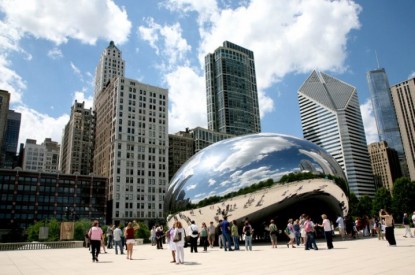Chicago Casino Feasibility Study
Study on the feasibility of locating a gambling casino in Chicago, required by the gambling expansion law signed by Gov. Pritzker in June. Chicago’s first casino would struggle to make money because it would be the most highly taxed gaming operation in America, according to a feasibility study released Tuesday by the Illinois Gaming. The study of the casino's economic impact would determine the size of the project. “The economics are going to drive what the Request for Proposal is,” the mayor said at an unrelated event Monday.
With an eye toward new developments, a feasibility study is being undertaken by the Illinois Gaming Board for a casino in Chicago, to be a major integrated resort in the city.
- State experts agree the Chicago casino will easily outperform Rivers Casinos in Des Plaines, the state's highest-grossing casino, which generated $440 million last year with its 1,200 gambling.
- The results of the study are in, and Mayor Lori Lightfoot agrees with the contention that under the state's current rules, a casino would not be successful. City Of Chicago Turns Out To Own Part.
The study, required by state law and paid for by the city, will be conducted by Union Gaming Analytics of Las Vegas. If found positive, the new casino will generate considerable revenues following a multi-billion dollar capital improvement plan.
A contract will be established by the Gaming Board with Union Gaming Analytics to inaugurate the study, which will focus on the feasibility of financing a casino in the city environs.
/cdn.vox-cdn.com/uploads/chorus_asset/file/18968987/Screen_Shot_2019_08_13_at_12.37.02_PM.png)
Plans were generated by Chicago Mayor Lori Lightfoot in August and gaming expansion legislation for five casinos was signed into law by Governor J.B. Pritzker. The downtown venue required a feasibility study.
Source:https://europeangaming.eu/portal/latest-news/2019/07/17/50731/union-gaming-analytics-to-evaluate-chicago-casino-feasibility/
A study on the feasibility of a new mega-casino in Chicago has produced legislative results. In order to improve the chances of such a facility actually existing someday, Illinois has modified the Chicago casino tax.
In response to the findings that a casino in Chicago wouldn’t have been fiscally solvent, an Illinois state legislator proposed an amendment to the state’s gambling laws. The amendment has broad support and could entice developers to buy into the project.
The problem with the original Chicago casino tax
House Floor Amendment 3 is a modification of the gambling expansion lawenacted in June. Illinois Rep. Bob Rita proposed the amendment after weeks of negotiations with Governor J.B. Pritzker, the City of Chicago and members of the Illinois Senate.
If enacted, the amendment would effectively lower the tax rate on the proposed Chicago mega-casino. The law allows that facility to offer 4,000 gaming positions, twice the maximum for other Illinois casinos.
In more technical terms, the amendment repeals an additional 33.3% privilege tax earmarked for the city. A privilege tax is a tax on any activity that is not a constitutional right. Property taxes on motor vehicles are another example of a privilege tax, as the Illinois state Constitution does not guarantee citizens the right to own a car.
The original framework added that 33.3% privilege tax on top of the regular rates that other Illinois casinos pay to their respective counties and to the state. Illinois casino taxes are progressive, meaning that rates go up as revenue climbs.
At the highest bracket of revenues of at least $200 million on slots and $25 million on table games, Illinois gaming facilities pay a 50% and 20% tax respectively. Adding the privilege tax meant a Chicago casino would have paid almost 74% of revenue out in taxes on its highest income.
The Illinois Gaming Board’s feasibility study found that to be too burdensome for such a business to actually turn a profit. Because of that, the state is considering a significant change.
Details on the new tax schedule in HFA3
A press release explains the amendment reflects the findings of the Gaming Board Feasibility Study directly. The tax rate on a Chicago casino will still be the highest in the state, however.

Instead of lumping an additional privilege tax on top of the normal rates, the changes lay out a new progressive tax. This particular schedule will only apply to the proposed facility in the Windy City.
The actual rates haven’t changed much. The casino would pay up to a total of 74.7% of monthly slots revenue. The highest rate on table games income would be 35%.
Chicago Casino Feasibility Study Guidelines



What have changed drastically, however, are the brackets. The highest tax rates would only apply to revenues at/above $1 billion on slots and $375 million from table games.
Legislators hope that developers look more favorably upon the prospects as a result. While it could still be a hard sell given the fact that several other casinos already exist in the region, it would have been nearly impossible to attract investors under the status quo.
Chicago Casino Feasibility Study Guides
With this move, the state’s plan to address issues like pensions for the City of Chicago’s employees becomes more realistic. The amendment also reassures citizens that Springfield can learn from its mistakes.